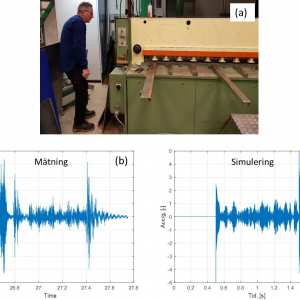The EVASTIR project will support the Swedish automotive industry with the transition from internal combustion engine to battery electric vehicles, while introducing new sustainable manufacturing processes. This project will develop a welding process, FSW, to support design and fabrication a cost-effective, scalable, lightweight and crash-resistant battery tray for electric vehicles. The specific technical objectives of this project are to develop FSW procedures for dissimilar material joints of cast and extruded aluminium alloys and for high speed welding to 5m/min.
The EVASTIR project will support the Swedish automotive industry with the transition from internal combustion engine to battery electric vehicles, while introducing new sustainable manufacturing processes. This project will develop a welding process, friction stir welding (FSW), to support design and fabrication a cost-effective, scalable, lightweight and crash-resistant battery tray for electric vehicles. The specific technical objectives of this project are to develop friction stir welding procedures for dissimilar material joints of cast and extruded aluminium alloys and for high speed welding to 5m/min. The project aims to strengthen the Swedish competitiveness in the electric vehicle industry and the successful completion of this project would enable a full Swedish supply chain through OEM, subcontractor, raw materials supplier and manufacturing equipment supplier. The project results are expected to be implemented in Swedish electric vehicle production within 1 to 3 years after completion of the project. The project is led by academic partner University West, and support by three major industrial partners, Volvo Cars, Hydro Extruded Solutions and ESAB. The total project duration is 2 years with a total budget of 3,6MSEK, of which 1.8MSEK would be funded through the Vinnova FFI programme.

 Kunskapsförmedlingen
Kunskapsförmedlingen 
